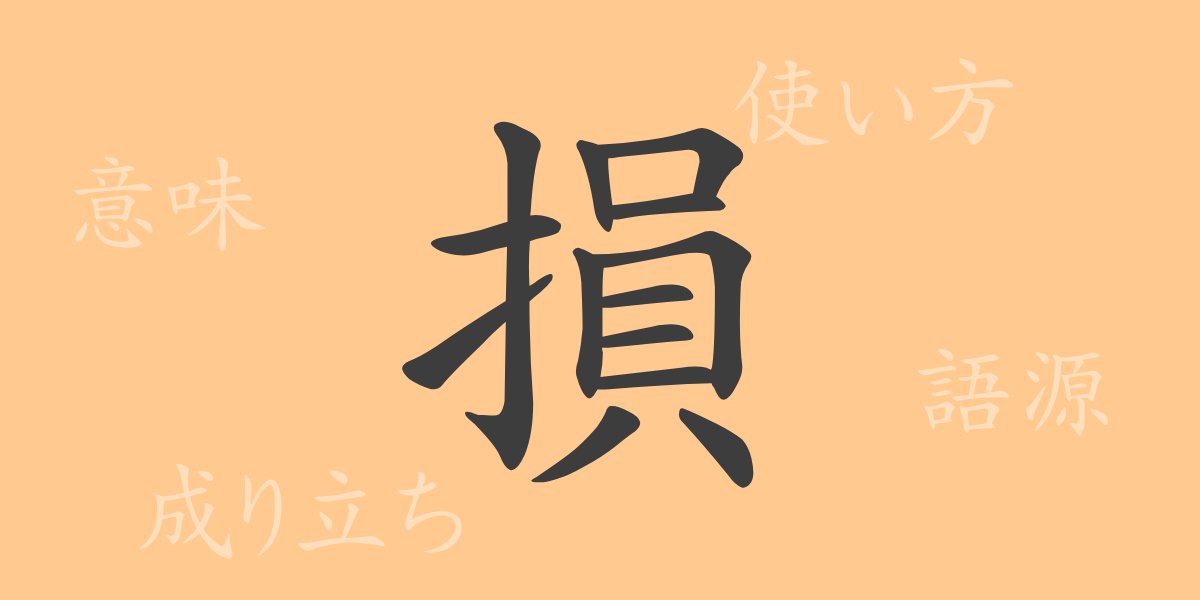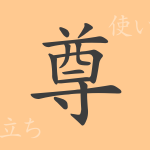Japanese culture is deeply reflected in the meanings of its words, where each Kanji has its unique history and significance. In everyday life, the Kanji “損” (そん)(ソン) (son) is frequently used, and this article will delve into its rich expressiveness and depth, from its origins to its meanings, uses, and the idioms and proverbs associated with it. Let’s explore how “損” closely connects to our lives, from business scenarios to casual conversations.
Origin of “損” (son)
The Kanji “損” originated from ancient China, combining the radical for “hand” and the symbol for “wealth” or “benefit,” represented by “員”. This combination initially symbolized “the loss of wealth from one’s hands,” which evolved to mean “loss” or “damage”. Over time, “損” has been used in various cultures and languages, and in modern Japanese, it is commonly used in expressions like “損する” (to incur a loss) and “損なう” (to damage).
Meaning and Usage of “損” (son)
“損” signifies “loss,” “decrease,” or “deterioration.” It is used to denote financial losses, missed opportunities, or the depreciation of value. The phrase “損をする” implies suffering a disadvantage or loss, with its antonym being “得をする” (to gain).
Readings, Stroke Count, and Radical of “損” (son)
Here’s a breakdown of the readings and structure of the Kanji “損”:
- Readings: On’yomi “ソン” (son), Kun’yomi “そこなう” (sokonau), “そこねる” (sokoneru)
- Stroke Count: 13 strokes
- Radical: Hand (てへん) (tehen)
Idioms, Phrases, and Proverbs Using “損” (son) and Their Meanings
There are numerous idioms and proverbs containing “損”, each with its unique implications. For example, “損得勘定” (そんとくかんじょう) (sontokukanjou) refers to judging matters based on loss or gain, “損害賠償” (そんがいばいしょう) (songaibaishou) means compensation for losses or damages, and “見損なう” (みそこなう) (misokonau) indicates misjudging someone’s abilities or character. The proverb “損して得取れ” (そんしてとくとれ) (sonshite tokutore) teaches that a temporary loss can lead to greater gains.
Conclusion on “損” (son)
The Kanji “損” is a multifaceted character used across various contexts, not just conveying negative connotations but also enriching communication and deepening cultural understanding. Through exploring “損”, we appreciate the breadth of its meanings and its importance in effectively utilizing our language in both business and daily life.

























